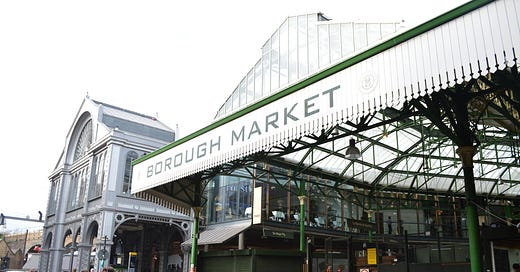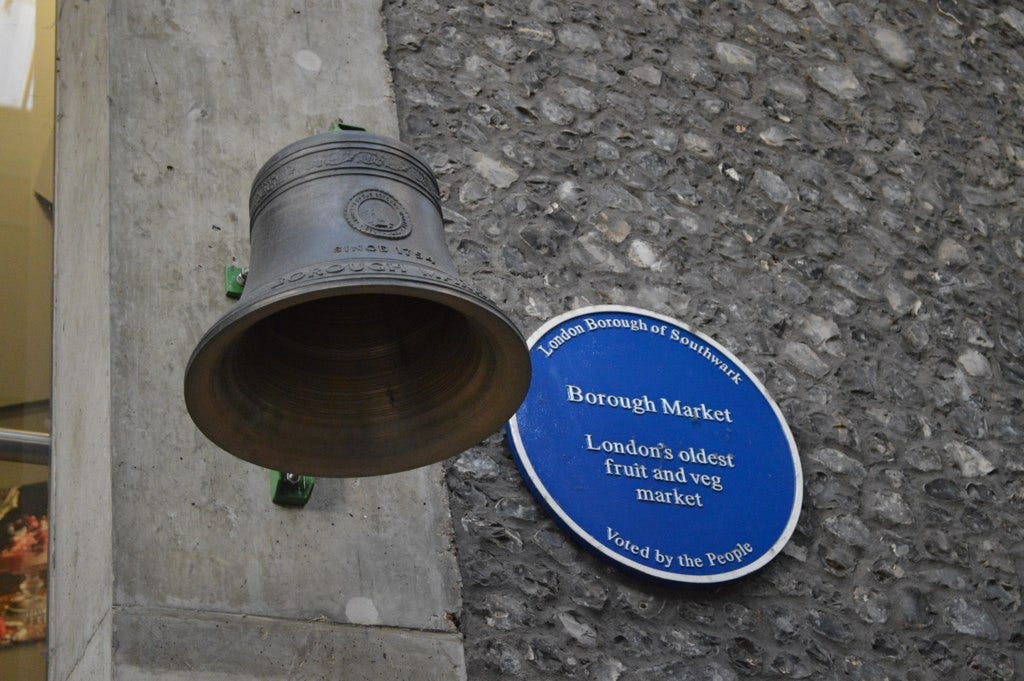Five... pieces of Borough Market's history
A classic tale of north vs south of the river rivalry
Hi and welcome to your weekend newsletter…
This edition’s a small sift through Borough Market’s long and produce-stacked history.
Includes original content from londonist.com by Laura Reynolds
It’s more than a millennium old (maybe)
The market claims its official birthday as 20th September 1014, by which count it turned the big 1010 years old last month.
Still, by some other counts it’s a bit less ancient, having moved locations multiple times during that period, with the earliest iteration of the market a big cluster of stallholders around Borough High Street by the end of the original London Bridge. It’s been trading on the current site since 1756, when an Act of Parliament allowed members of the Southwark community to acquire land away from the main street and to set up a market themselves.
North vs south of the river: 1270 edition
In medieval times, Borough and the Southwark area weren’t part of London — London was confined to the City of London, only to be reached by the medieval incarnation of London Bridge. Traders at Borough Market riled the City of London by undercutting the prices offered by the City's own traders, to the extent that it banned its citizens from heading south across London Bridge to buy "corn, cattle, or other merchandise" in Southwark.
The market — and the wider Southwark neighbourhood — was also attracting criminals fleeing the law, until the monarchy stepped in during the 1400s to give the City of London rights over Southwark and in doing so, made it a de facto part of London, later formalised by Edward VI in the 1500s.
‘The vagaries of the legal system at the time meant that any felon committing a crime in London could, in the words of a petition presented to the King in 1327, “stealthily flee to Southwark openly where no bailiff of the City can attach them”…
In 1406, Henry IV finally granted London the right to arrest criminals found in Southwark and at the same time granted “assay and assize of bread, wine, and ale and other victuals and of any other things belonging to the clerk of the market of the King’s household”.’
from ‘Borough Market began with a bridge’ by Mark Riddaway







